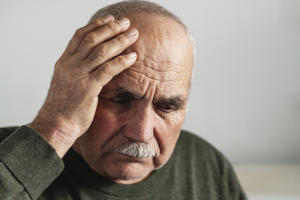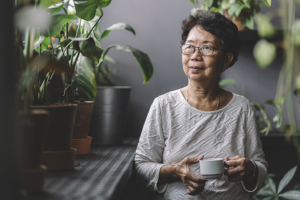Power Outage Tips for Seniors: Prepare Now to Prevent Problems Later!
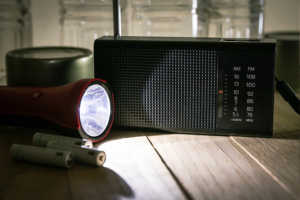
Implement these power outage tips for seniors today to ease stress when the lights go out!
Summertime is a prime time for power outages. For many of us, it is a minor inconvenience; however for older adults, it may cause an actual safety concern. The simplest way to handle sudden power outages is through proactive preparation to ensure older loved ones are equipped and prepared to ride out the storm, giving you the peace of mind you need. Knowing and implementing power outage tips for seniors in advance of an emergency is the best way to alleviate stress and worry.
Help older family members stay prepared and secure during unexpected electricity emergencies by first evaluating their particular situations. Consider daily routines, mobility limitations, and medical needs. Develop a crisis plan that addresses these factors, ensuring it’s straightforward and easy to follow. Include clear instructions on what to do and the best place to go if there is a need to evacuate quickly.
- Establish a Support Network: Identify a community of relatives, neighbors, and friends who can help in an emergency. Ensure they are informed about the person’s specific needs and know how to help with the emergency plan. Communication is key, so keep contact details updated and easily accessible. Also, provide a list of emergency contacts in this network to local emergency services, which can save valuable time in critical situations.
- Routinely Review and Practice the Plan: Review the emergency plan regularly, making alterations as necessary to adapt to any changes in the senior’s health or living situation. Practice emergency drills to make sure everyone feels comfortable about what to do in various scenarios, like power failures, medical emergencies, and natural disasters, to cover a broad range of possibilities.
- Install Safety Enhancements: Implement modifications in the house to make it safer during emergencies. Install smoke alarms and carbon monoxide detectors, and ensure they function correctly with battery backups. Consider the use of non-slip mats and adequate lighting, particularly in areas like bathrooms and hallways, which could prevent accidents when the lights are out during an electrical outage.
- Explore Emergency Power Options: Consider installing backup power solutions like generators or battery backups, particularly for homes where medical equipment is in use that requires electricity. Teach family members how to safely operate these devices and check them regularly to make sure they are functional when needed.
- Secure Important Documents: Keep copies of important documents like insurance plans, identity cards, medical records, and contact info for healthcare providers in a safe, easily accessible place. Consider having digital copies available as well, protected by strong passwords and stored on a secure cloud service or a USB drive in a waterproof and fireproof container. This will ensure that crucial information is retrievable in a variety of emergency scenarios.
- Keep a Well-Stocked Emergency Kit: Prepare an emergency kit that includes essentials such as water, non-perishable food, medications, and first aid supplies. Also, take into account the need for extra batteries, a flashlight, a battery-operated radio, and a manual can opener. Include a supply of blankets and warm clothing in the event of unexpected cold temperatures. Make sure to check and update the contents of the kit on a regular basis, replacing expired items and adapting to changing medical needs.
Being proactive with emergency preparedness can significantly lessen the stress and confusion faced during actual emergencies. By taking these steps, you can help ensure that older adults stay safe and secure, no matter what challenges may arise.
At Responsive Home Care, our caregivers are here to help provide necessary care and support during power outages or any other emergency situations. Ensure smooth, seamless care, regardless of the weather! Partner with Responsive Home Care for all of your care needs in Fort Lauderdale, Plantation, Deerfield, or the nearby areas in Broward County by calling 954-486-6440 today!

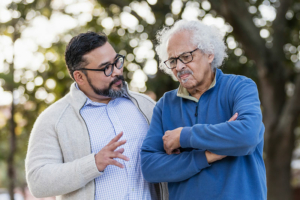
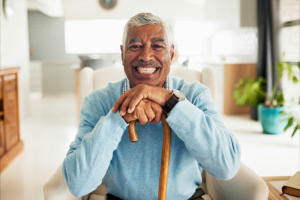

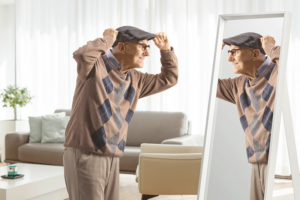
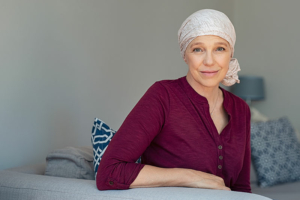
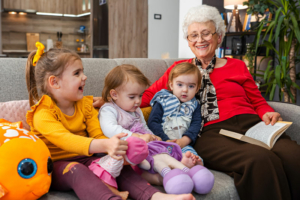
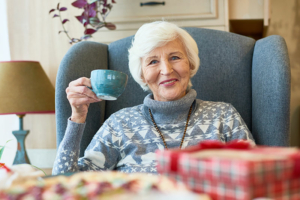
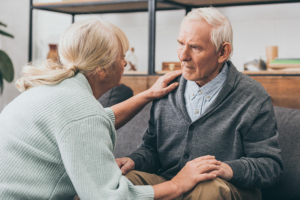 Everyone goes through good days and bad days, and everyone is entitled to negative thinking or irritability every now and then. If you are caring for an older adult who appears to have fallen into a routine of continual negativity and complaining, there could be a reason for it. It’s worthwhile to explore whether or not a health issue may be the culprit for negative mood changes in a senior.
Everyone goes through good days and bad days, and everyone is entitled to negative thinking or irritability every now and then. If you are caring for an older adult who appears to have fallen into a routine of continual negativity and complaining, there could be a reason for it. It’s worthwhile to explore whether or not a health issue may be the culprit for negative mood changes in a senior.
